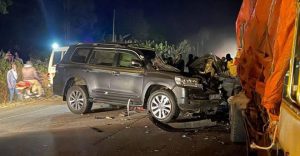
#OutToLunch Declined treasury bond bids could spur private sector growth
#OutToLunch Declined treasury bond bids could spur private sector growth By Denis Jjuuko As you already know, Uganda is one of the most entrepreneurial countries in the world. Many people including those in formal employment have some bit of business they do on the side. We have come to know it as the side hustle. Many of these businesses aren’t that profitable as they are subsidized by their owners using income or perks from their formal jobs. A farm in the countryside that may look profitable may cease being so once the owner starts factoring in the cost of driving there every weekend. Others are subsidized by spouses, sometimes unknowingly. If for example you fuel your spouse’s car which they use to go to run their boutique in the mall and meet all its maintenance cost, they may not realize that the business they think is profitable isn’t actually. Once the formal job goes or the spouse renegades on meeting some costs, many of these side hustles collapse. But they aren’t the only ones. Even those started by full time hustlers collapse within the first five years. There are many reasons why businesses collapse but one of them is the cost of capital or in most cases the sheer lack of it. If you are into motivational books from America and Europe, they will claim that capital isn’t the most important thing for an entrepreneur. They may have a point but they write from an economy where venture capital exists or where loan interest rates are in single digits, not ours of upwards of 20%. So, for a Ugandan entrepreneur, capital or the lack of it is a key reason for the success or failure. So, I was intrigued reading a press release from the Bank of Uganda that gave results of the central bank’s treasury bond auction held on 12 July. They (central bank) needed to borrow Shs150 billion for a three-year period and Shs300 billion for 20 years. Instead, it received bids worth Shs272 billion for the three-year bond and Shs838 billion for the 20-year bond. It accepted Shs171 billion for the three-year bond at 13.5% interest annually and Shs354 billion for the 20-year bond at 15%. More than Shs585 billion was not taken so investors may be out there looking for opportunities on the secondary market or for the next auction. As individuals and institutional investors trip themselves to lend to government, businesses are collapsing for lack of money. And the government is telling them, we don’t even need much of your money anyway. Take it elsewhere. But they won’t because treasury bonds and bills give investors a very low risk return for their money. So imagine if you invested Shs1 billion for 20 years and did nothing and at the end of the day earned a gross income of Shs150 million annually (paid twice a year), why would you do anything else? A commercial bank would rather invest its billion in a treasury bond where it is almost guaranteed of a 15% gross return while doing nothing than lending it to a businessperson at 24% without any guarantees that the money will be paid back. The businessperson may have secured a loan with a building or land as a collateral but still commercial banks are not in the real estate business. They largely frown at the hustle of selling people’s assets when they fail to pay back. To avoid the inconvenience of selling people’s assets when they have failed to pay and the cost of loan recovery, they prefer to lend to the government through treasury bonds and bills. Without any hustle, they get their gross 15% annually on their investment. Who wouldn’t want to do that? That pushes the cost of money in Uganda higher because the alternative through the central bank auctions is much better than running after an individual to pay back. And sometimes you even end up in costly legal battles as the borrower claims you didn’t have the legal mandate to lend to him and therefore wouldn’t pay. But this Shs1 billion may not be able to grow the economy as much as that invested in the private sector where many jobs could be created. As a country we need to find solution for affordable capital for the private sector. So instead of the central bank declining nearly Shs600 billion of bids, what about taking it at a lower interest rate and then lend it to businesses at a rate that can enable businesses to grow? That way they would collect more taxes from the growing businesses. Or how do we build the confidence of investors in treasury bonds to instead invest in private sector when their bonds are declined? The writer is a communication and visibility consultant. djjuuko@gmail.com


